First-person accounts of 33 women from across Maharashtra who took recourse to Buddhism, for personal and political reasons, map the human search for a non-hierarchical spiritual order
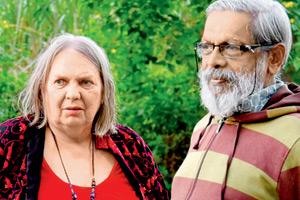
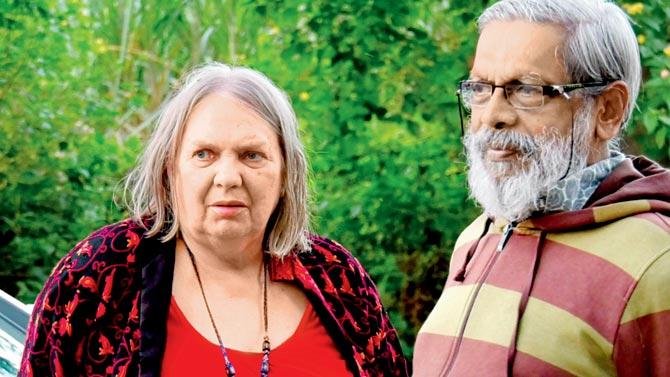
Dr Gail Omvedt, 76, American-born sociologist who has contributed to Culturally Correct, came to India in the 1960s as a student of the University of California. She is seen here with husband Dr Bharat Patankar, a human rights activist. (Pic/Somnath Waghmare)
 Dr Gail Omvedt, American-born sociologist and Fulbright scholar wrote We Shall Smash This Prison: Indian Women in Struggle in 1979. It recorded her participation in various women's movements ever since she landed in India in the sixties as a student of the University of California. Today, the 76-year-old is an Indian citizen, a prolific writer on Dalit and women's rights and someone who oft-quotes Mahatma Phule and Shahu Maharaj.
Dr Gail Omvedt, American-born sociologist and Fulbright scholar wrote We Shall Smash This Prison: Indian Women in Struggle in 1979. It recorded her participation in various women's movements ever since she landed in India in the sixties as a student of the University of California. Today, the 76-year-old is an Indian citizen, a prolific writer on Dalit and women's rights and someone who oft-quotes Mahatma Phule and Shahu Maharaj.
She lives in Kasegaon near Sangli with her husband and human rights activist Dr Bharat Patankar. In reasonably fluent Marathi, she can critique the present-day caste realities, as she has done in the just-released Marathi anthology of first-person accounts of women who have espoused Buddhism as a way of life.
Dr Omvedt's journey as an academician and as an outsider-insider looking at Maharashtra's caste mathematics, emerges vividly in a chapter titled, Buddha Dhammachya Sweekaratoonach Streemukti (Achieving Emancipation by Embracing Buddhism). In the book that captures 33 voices, hers is one of the most candid and befitting the title of the book, Culturally Correct (Granthali; R350). She believes that Buddhism, particularly Babasaheb Ambedkar's iconic decision to embrace Buddha, transformed the lives of many women and gave them a gender identity. She says the religious crossover had a liberating influence: "Women who were initiated into Buddhism at Babasaheb's behest are much more confident, more self-assured and profounder than the other women, particularly in the literary, cultural, political and social gamut."
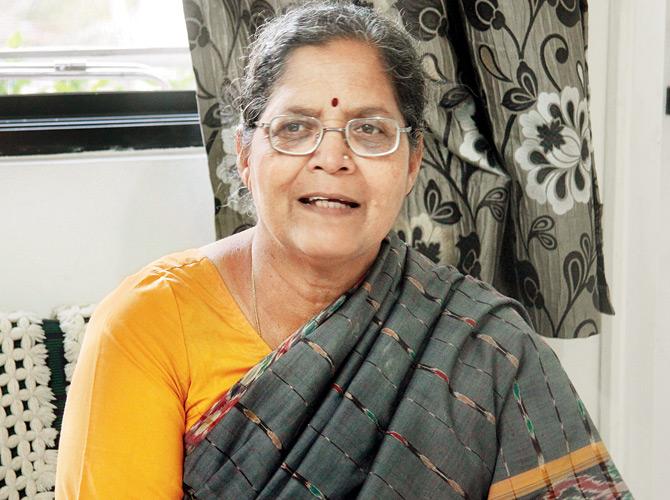
Dr Lata Chhatre
Dr Omvedt is not blind "to the relatively small percentage of Buddhists who truly follow Ambedkar's thought-provoking writings; and fewer who have read his key treatise The Buddha and His Dhamma," but she feels women stand to gain from Lord Buddha's Atta Deepa Bhava (Be Thy Own Light) philosophy, which rests on the awakening of the mind. This, in turn, prompts women and men to see the world with clearer eyes and compassion, promoting equality beyond gender, caste and social status; anyone can gain entry into the Buddhist Sangha or monastic order at any point.
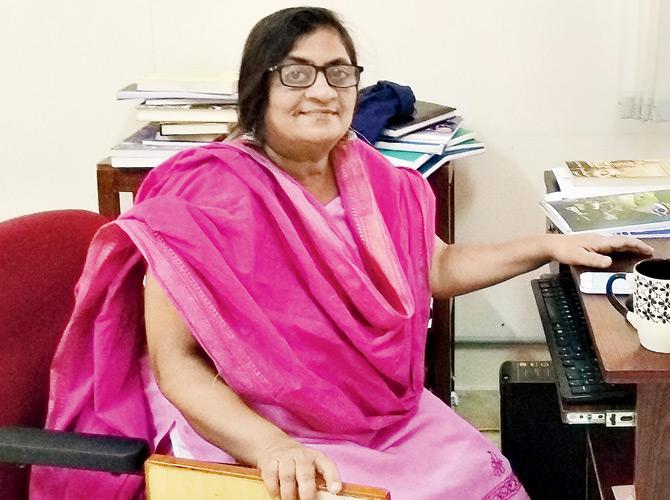
Lata Pratibha Madhukar
The montage of narratives include some from women who have daringly bared their personal lives to show how and why they chose a new belief system which enabled them to counter exploitation at the family level. While some of them are obviously bitter about the treatment meted out to them, others are measured in their outburst (especially taking care not to disturb equations with in-laws and spouses), avoiding personal references and solely focusing on the comparison of Buddhism with other religions.
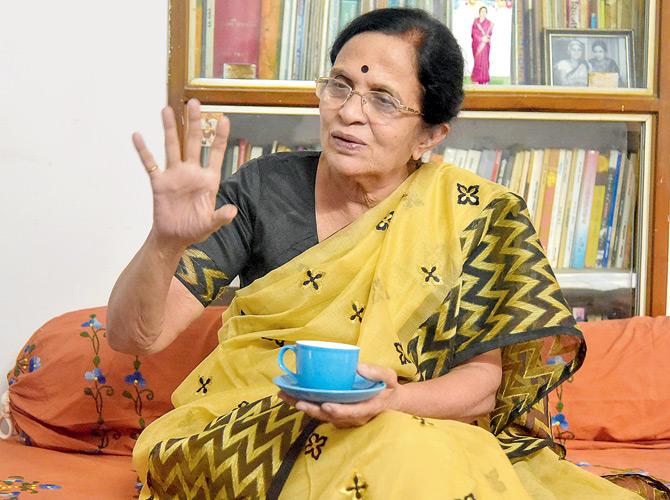
Dr Rupa Kulkarni
Amongst the most evocative voices is activist-scholar Lata Pratibha Madhukar, who has alleged that her caste played a role in the denial of opportunities that she would have otherwise been granted to play a fuller, more leading role in the Narmada Bachao Andolan. The book also showcases many highly educated and privileged women born as Brahmin Hindus, who do not have a personal history of discrimination, but who broke the shackles of a visibly unjust and hierarchical establishment. There is a sizeable section of activist women who espouse Babasaheb Ambedkar's neo-Buddhist political philosophy and are assembled in groups like the Satyashodhak OBC Parishad which is credited with several mass conversion public events; each one positioned as a vehicle of protest against the high caste and the rich in Maharashtra. Few voices also dwell upon the rigidity in the Buddhist converts, particularly the rituals, rites and oaths that should not have characterised a religion which was born out of a renunciation of the Vedic religion's rulebook.
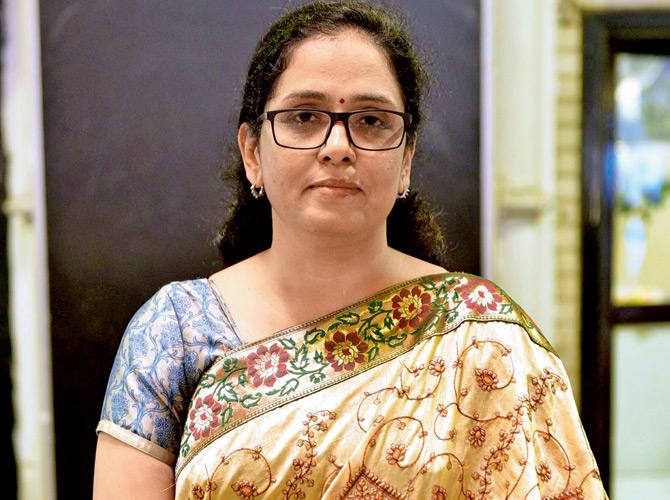
Dr Vandana Mahajan. Pics/Mandar Tannu, Bipin Kokate
It is interesting to see a record of contrary views about the necessity for the public ceremony of entering the fold of the Dhamma. Some women have taken the deeksha in public, whereas others preferred to keep their Buddhist ideology in the private realm, stating that any consecration brings with it a sense of pride and ostentation. One of the editors of the book - Dr Vandana Mahajan - a literary critic and poet born in the Mali caste hailing from Jalgaon district, and now associate professor of Marathi in university of Mumbai) who herself has not opted for a formal deeksha ritual - justifies the "political act" of mass conversion.
"Personally, I may not have gone for the public act, but all members of all oppressed castes cannot be applied the same logic. There are many who may derive security and confidence from telling the world that they are not subject to the framework that was once binding."
Interestingly, Dr Mahajan's co-editor Sandeep Sarang feels strongly against those who don't declare their Buddhist credentials. "Those who claim that they need not be 'attached' to Buddhism, are naïve; they don't recognize the role of an organized religion in a person's making.
They feel an intellectual identification is enough at a personal level." He further questions: "Why avoid commitment? Isn't it natural to be attached to a philosophy, if you agree with everything? It is like wanting to marry a person whom you adore?"
But the richest perspective Culturally Correct offers comes from women who have researched and written on Lord Buddha's egalitarian worldview and its current-day relevance to Indian women. Dr Lata Chhatre is the writer of Buddhist Logic: A fresh Study of Dharmkirti's Philosophy, Buddhist Epistemology, Logic and Language and Bauddha Dharmatil Strivichar. She feels Buddhism is best-suited to Indian women as it offers a balance between work-life options. "This is the only religion which presupposes every individual's choice to shape his or her life. It doesn't impose a gender-based or caste-based responsibility or obligation on women, which the Vedic religion does," says Dr Chhatre, 60, who recently retired from the Philosophy Department of the University of Pune. She started studying Buddhism after she lost her husband in 1992. "Personal grief prompted me to experience the philosophical depth of Buddhism. It gave me the confidence to rise above my woes."
Nagpur-based Sanskrit scholar and an untiring leader of unorganized domestic workers since the seventies, Dr Rupa Kulkarni, 72, was also attracted to Buddhism for personal reasons. She took deeksha in 1992 in a formal ceremony in Nagpur, following which she became an overnight celebrity and a butt of hatred too, considering the strange backdrop she represented – a single woman living in a conservative city dominated by the rightist Rashtriya Swyamsevak Sangh, but raised in a progressive Brahmin family in which her 92-year-old aaji also endorsed the dhammadeeksha decision.
Dr Kulkarni was pulled into Ambedkarite Buddhism while she was teaching in Nagpur University and she had to address the controversy over Dr Ambedkar's Riddles of Hinduism. She wrote and spoke against the demand for a ban on Ambedkar's book detailing the contradictions in the scriptures of Hinduism. She quoted politically-inconvenient passages from Ramayana and Manusmruti, which demonstrated how Dr Ambedkar's Riddles critiques the techniques of manipulative reinterpretation and circumlocution in the Hindu religion. She became a lifelong advocate of Dr Ambedkar and then a member of the Dhamma. "In Hinduism, there is no scope for caste conversion. You die in the caste that you are born in. But by crossing over to Buddhism, people like me, can live a casteless life."
Lata Pratibha Madhukar, the writer of the play Buddha Abhibhi Has Raha Hai, feels Buddhism frees the individual from any rank order. Her play raised the slogan Yuddh nahi, Buddha chahiye (We want Buddha, not war), in 2004. As she points out rightly, the catchphrase was once labelled as a sectarian mantra. Over the years, it is acknowledged as an affirmation of tolerance, non-violence and fearlessness. Not just the 33 women gathered in Culturally Correct, but all-faith seekers choose Buddhist retreats for contemplative silence the world over. An appointment with life, they call it!
Sumedha Raikar-Mhatre is a culture columnist in search of the sub-text. You can reach her at sumedha.raikar@gmail.com
Catch up on all the latest Crime, National, International and Hatke news here. Also download the new mid-day Android and iOS apps to get latest updates
 Subscribe today by clicking the link and stay updated with the latest news!" Click here!
Subscribe today by clicking the link and stay updated with the latest news!" Click here!







